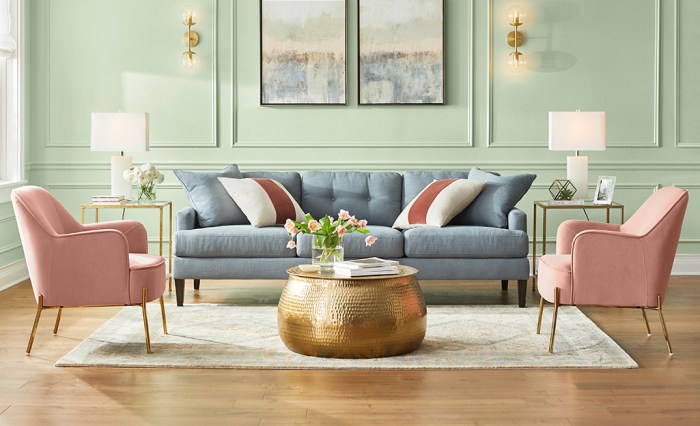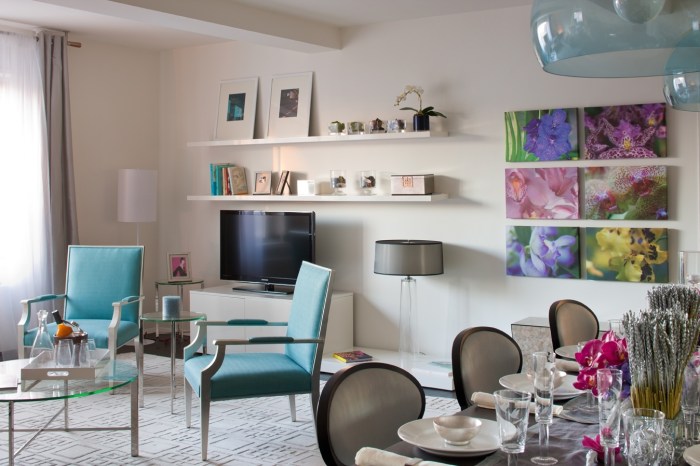Revamp Your Space: The Ultimate Guide to Home Decorator
Step into the world of home decorator where creativity meets functionality. From transforming ordinary spaces into extraordinary havens to personalizing every corner with style, this guide dives deep into the art of home decorating.
Explore the key aspects of what it takes to become a successful home decorator and how professionals work their magic to turn houses into dream homes.
Introduction to Home Decorator

When it comes to creating a beautiful and functional living space, the role of a home decorator is crucial. Home decorators are skilled professionals who specialize in enhancing the aesthetic appeal and overall ambiance of a home through the selection of furniture, color schemes, decor items, and layout arrangements.
The Importance of Hiring a Professional Home Decorator
1. Expertise: Professional home decorators have the knowledge and experience to create cohesive and visually pleasing designs that suit your personal style and preferences.
2. Time-saving: By hiring a home decorator, you can save time and avoid the stress of making countless design decisions on your own.
3. Access to Resources: Home decorators have access to a wide range of resources, including furniture suppliers, paint colors, and decor pieces, that may not be readily available to the general public.
Examples of How a Home Decorator Can Transform a Living Space
- 1. Room Layout: A home decorator can optimize the layout of a room to maximize space and functionality, creating a more comfortable and efficient living environment.
- 2. Color Scheme: By choosing the right color palette for walls, furniture, and decor, a home decorator can set the tone for the entire space, creating a harmonious and inviting atmosphere.
- 3. Furniture Selection: Home decorators can help select furniture pieces that not only fit the style of the room but also provide comfort and functionality for everyday use.
Skills and Qualities

To become a successful home decorator, certain key skills and qualities are essential to master. These attributes not only enhance your abilities but also contribute to your overall success in the field.
Importance of Creativity and Attention to Detail
Creativity is the cornerstone of home decorating. It allows you to think outside the box, come up with innovative ideas, and transform spaces into visually appealing environments. Attention to detail is equally crucial as it ensures that every element in a room is carefully considered and contributes to the overall design aesthetic.
These two qualities work hand in hand to create stunning and well-thought-out interiors that reflect your unique style and vision.
Significance of Staying Updated with the Latest Design Trends
In the ever-evolving world of design, staying abreast of the latest trends is paramount for a home decorator. By keeping up with new styles, materials, and color palettes, you can offer clients fresh and modern design solutions that align with current aesthetics.
This continuous learning process not only enhances your skills but also sets you apart as a knowledgeable and trend-savvy professional in the competitive design industry.
Services Offered
Home decorators offer a variety of services to help clients create their ideal living spaces. These professionals are skilled at transforming interiors to reflect the tastes and preferences of their clients. Let’s explore the different services typically offered by home decorators.
Interior Decorating vs. Home Staging
- Interior decorating focuses on creating functional and aesthetically pleasing spaces for everyday living. Decorators work closely with clients to select furniture, lighting, color schemes, and accessories that reflect their style.
- Home staging, on the other hand, is geared towards preparing a home for sale. Decorators will declutter, depersonalize, and rearrange furniture to showcase the property in the best possible light for potential buyers.
Personalized Services for Clients
Home decorators personalize their services to meet the specific needs and preferences of each client. Here are some examples of how decorators tailor their services:
- Customized color palettes based on client’s preferences and existing furnishings.
- Space planning to optimize the functionality of a room according to the client’s lifestyle.
- Sourcing unique and one-of-a-kind pieces to add a personal touch to the space.
- Collaborating with clients to incorporate sentimental items into the design for a meaningful space.
Client Collaboration
Collaborating with clients is a crucial aspect of the home decorating process. By understanding their preferences, home decorators can create spaces that truly reflect the client’s style and vision.
Understanding Client Preferences
Before beginning any design project, it is essential for home decorators to sit down with their clients and discuss their likes, dislikes, and overall vision for the space. This may involve looking at inspiration images, discussing color palettes, and understanding any specific requirements the client may have.
Incorporating Client Feedback
- Home decorators should encourage open communication with clients throughout the design process. This allows for feedback to be incorporated seamlessly into the project.
- Client feedback can range from small details like adjusting the placement of furniture to larger changes in the overall design concept. It is important for decorators to be flexible and adapt to the client’s needs.
- Regular check-ins and updates with the client ensure that any changes or adjustments are made in a timely manner, keeping the project on track and ensuring client satisfaction.
Effective Communication Tips
- Listen actively to the client’s ideas and concerns to ensure their vision is accurately translated into the final design.
- Set clear expectations from the beginning regarding timelines, budgets, and project scope to avoid misunderstandings down the line.
- Be open to constructive criticism and be willing to make adjustments based on the client’s feedback.
- Provide regular updates and progress reports to keep the client informed and involved in the decision-making process.
Budgeting and Planning
When it comes to home decorating projects, budgeting and planning are essential aspects that play a crucial role in the success of the project. Home decorators need to carefully consider how to allocate funds effectively while maximizing the impact of each decorating element.
Let’s delve into how home decorators create budgets, strategies for maximizing the impact of a decorating budget, and how they plan and prioritize tasks for efficient project completion.
Creating Budgets
Home decorators typically start by assessing the scope of the project and determining the overall budget available. They break down the budget into categories such as furniture, accessories, paint, and labor costs. Detailed cost estimates are made for each category to ensure that the budget is realistic and covers all necessary expenses.
Maximizing Budget Impact
- Focus on key areas: Home decorators prioritize spending on key areas that will have the most impact, such as statement furniture pieces, accent walls, or lighting fixtures.
- Repurpose and DIY: To save money, decorators may repurpose existing furniture or decor items, or opt for DIY projects to create custom pieces at a lower cost.
- Shop smart: Decorators look for sales, discounts, and clearance items to stretch the budget further without compromising on quality.
- Invest in quality: While budgeting is important, decorators understand the value of investing in quality pieces that will last longer and provide better overall value in the long run.
Planning and Prioritizing Tasks
Efficient project completion requires careful planning and task prioritization. Home decorators follow a systematic approach to ensure that each step is completed in the most effective order.
- Develop a timeline: Decorators create a project timeline that Artikels key milestones and deadlines for each phase of the project.
- Prioritize tasks: By identifying critical tasks and dependencies, decorators prioritize activities to ensure that the project progresses smoothly.
- Allocate resources: Assigning resources such as time, budget, and manpower to each task helps decorators stay on track and meet project goals.
- Monitor progress: Regularly reviewing project progress and adjusting plans as needed allows decorators to address any issues promptly and keep the project on schedule.
End of Discussion
In conclusion, home decorators play a crucial role in bringing visions to life and creating spaces that reflect individuality. Whether it’s a complete renovation or a simple touch-up, the expertise of a home decorator can truly elevate any living space.
FAQ Insights
What is the primary role of a home decorator?
A home decorator specializes in transforming living spaces by incorporating design elements that reflect the client’s personality and preferences.
How do home decorators personalize their services?
Home decorators personalize their services by understanding the client’s needs, preferences, and style, ensuring a unique and tailored approach to each project.
What are the key skills needed to excel as a home decorator?
Key skills for a successful home decorator include creativity, attention to detail, strong communication, and the ability to stay updated with design trends.




